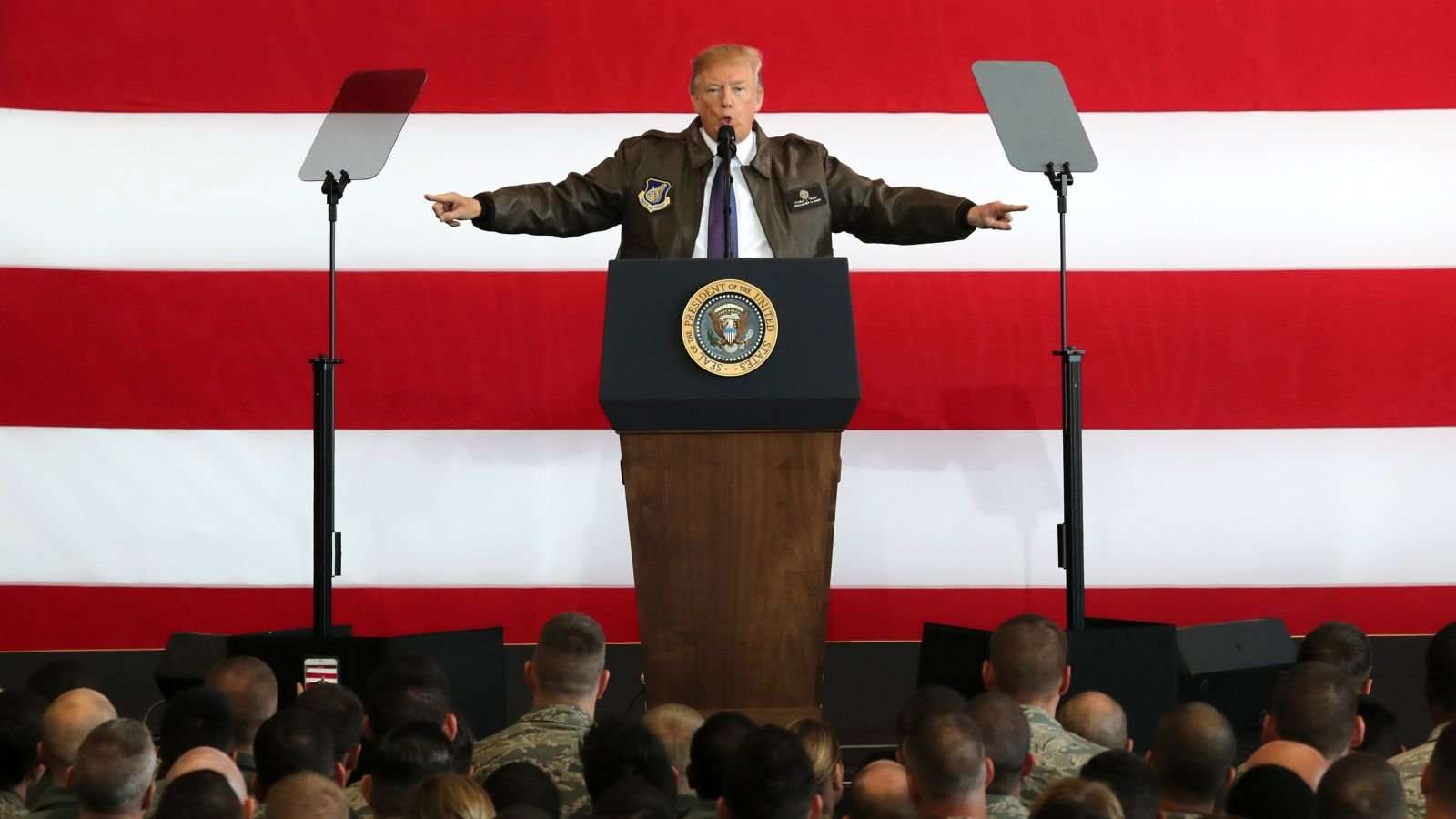President Donald Trump has headed to Japan at the head of an 11-day Asian tour, with last-ditch efforts to resolve the North Korean nuclear crisis before it spirals out of control at the top of the agenda. And, true to form, the guy is not exactly being a confidence builder with respect to his understanding of missile defense systems.
According to the Japan Times, diplomatic sources confirm that with a Monday meeting with Prime Minister Shinzo Abe looming, our very lucid leader has set low expectations with complaints that “he could not understand why a country of samurai warriors did not shoot down the missiles.” Aside from the fact that this is essentially a racist stereotype and katanas, no matter how well made, cannot shoot down a missile, there are numerous technical reasons why Japan’s Self-Defense Forces stood down.
As the Times noted, the speed, altitude, and trajectory of North Korean ballistic missile tests on August 29th and September 15th would have made it “very difficult to destroy them in flight.” Per Ars Technica, the August launch of an intermediate-range missile reached an altitude of 550 kilometers (340 miles), stressing the possible limits of U.S. and Japanese forces’ Aegis missile defense systems. Aegis uses SM-3 missiles to shoot down short-range missiles in mid-course and SM-2 missiles to shoot down longer-range attacks in their “terminal phase.” However, the first option would require Aegis ships run extremely close to the North Korean coast, where they could potentially be counter-attacked, and the second is a risky bet relying on the “relatively primitive” state of North Korea’s re-entry vehicle technology.
As Defense One noted, at its apogee the September intermediate-range
missile launch which flew over the Japanese island of Hokkaido reached an altitude of approximately 770 kilometers (470 miles), which would defeat Aegis as well as U.S. forces’ Terminal High Altitude Area Defense (THAAD) system and Japanese Patriot missile defenses. With the missile at such a high altitude, the only possibility to shoot it down would be in its descent phase—as it was coming down in the ocean beyond Japan, when there would be little point.
A failure to shoot down a North Korean missile could be incredibly embarrassing, leaving the U.S. and Japan with less leverage to deal with the threat than ever. As the Times noted, Japan’s Defense Ministry has basically confirmed this is why they didn’t try and that there were also “legal issues to clear.”
Per CNN, Abe has met Trump warmly, greeting him with custom Make America Great Again hats and taking him out for golfing and to a hibachi circular bar. But if Abe’s a little nervous about his counterpart’s capacity to handle this, he should be. In a speech to troops, the president told troops, “We dominate the sky. We dominate the seas. We dominate the land and space.” He ominously added that, “Every once in a while, in the past, they underestimated us. It was not pleasant for them, was it? It was not pleasant.”
Last month, news broke that the reason Secretary of State Rex Tillerson allegedly called Trump a “moron” was because he wanted to expand the U.S. nuclear arsenal from 4,000 to 32,000 nukes, even though the current stockpile is more powerful than ever. The guy is playing with fire, and he just doesn’t give a damn how hot it is. He’s pouring gasoline.

robothumanist on November 5th, 2017 at 22:27 UTC »
Now there's a sequence of words I never expected anyone to say, let alone the president of the US.
antiproton on November 5th, 2017 at 22:10 UTC »
Did he pull his eyes into little slits while saying it?
iamnotbillyjoel on November 5th, 2017 at 21:36 UTC »
It seems like a strange question even if you remove the Samurai, because Japan has already committed itself to shooting down ICBMs that are headed towards Guam.